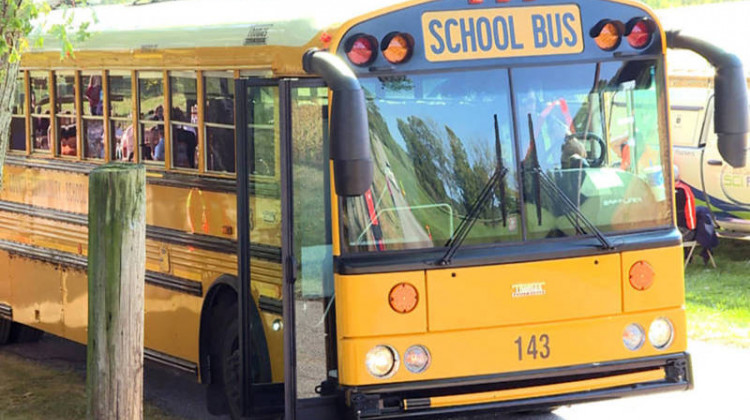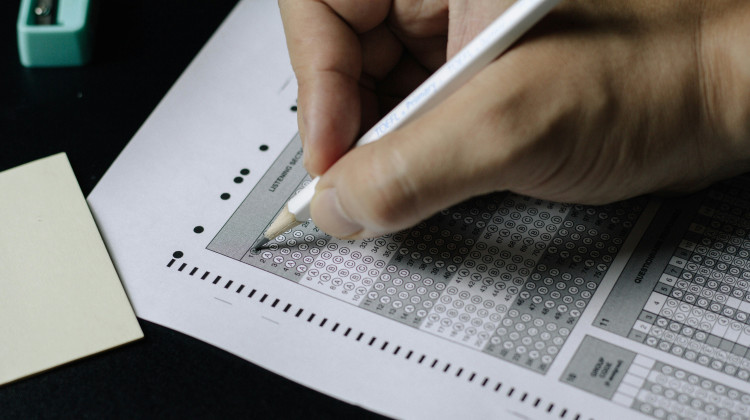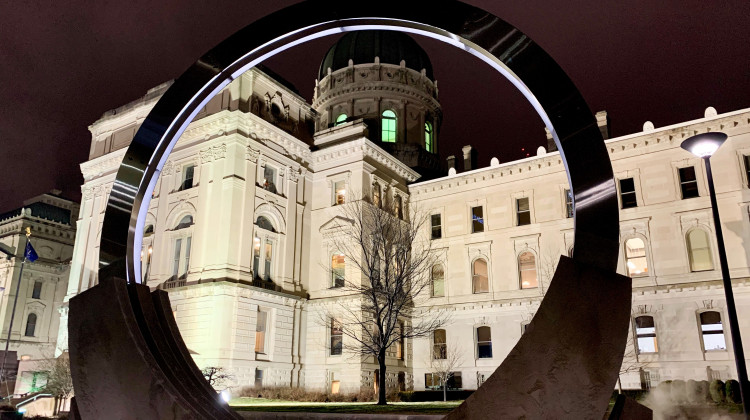
A law that went into effect earlier this year makes says drivers caught illegally passing stopped school buses can face penalties including fines of up to $5,000 or have their license suspended for up to a year.
FILE: Jeanie Lindsay/IPB NewsIncreased police patrols surrounding school bus stops, paid for by a grant program, have nabbed more than 400 Hoosiers running stop arms of stopped buses.
Nearly 40 police agencies used SAVE grants to pay for extra patrols surrounding schools and bus routes.
In total, the state says, 2,675 tickets were issued and 1,430 warnings given. Of those, 453 tickets were for stop arm violations, including passing a stopped school bus when it is picking up or letting off children. Tickets were also written for things like speeding, failing to stop at a stop sign or stop light, and not wearing a seatbelt.
In Indiana, a 2018 voluntary survey from the Indiana Department of Education showed more than 3,000 vehicles illegally passed stopped school buses in just one day.
Read More: How Do Police Officers Enforce School Bus Safety Laws? They Go Along For The Ride
The grants were part of a new state law, passed after three children in northwest Indiana were killed by a driver who ignored a bus stop arm.
Though the grant program is a statewide initiative, it’s paid for by federal National Highway Safety Transportation funds.
 DONATE
DONATE







 Support WFYI. We can't do it without you.
Support WFYI. We can't do it without you.